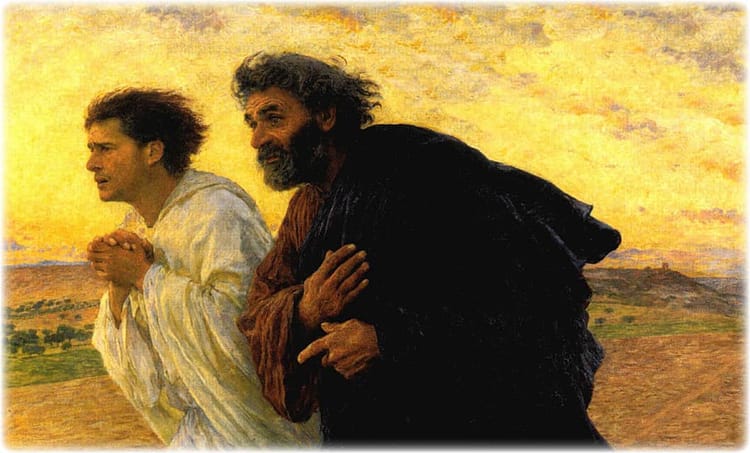Living Faithfully When It Costs (1 Peter 4:1-11)

Last week, those of us who were here looked at the ways that Christians usually interact with culture. Christians sometimes disengage from society. They keep their noses clean and think that the real problem is that certain Christians allow themselves to get too involved with the world. They isolate themselves from anyone and anything that isn't Christian.
On the other hand, some accommodate themselves to culture. They live a lifestyle that's not all that different, and nobody even realizes that they're Christian.
We looked at 1 Peter, who suggests a third way. Don't isolate yourself from culture. To integrate into your community, attend parties, befriend non-Christians, participate in soccer coaching, and join the local community board. But live distinctively within culture. As you're in contact, allow people to see the hope that you have in Christ, and be prepared to talk about it. We talked about the fact that this is the hardest way to live – neither isolated from culture nor accommodating to what's wrong with culture, but it's the way we're called to live.
The Problem
But there's a problem with living this way, isn't there? Peter talks about the problem in 1 Peter 4. Read with me what he says in verses 3-4:
For you have spent enough time in the past doing what pagans choose to do—living in debauchery, lust, drunkenness, orgies, carousing and detestable idolatry. They are surprised that you do not join them in their reckless, wild living, and they heap abuse on you.
Here's the problem. The people that Peter writes too didn't used to be followers of Christ. Some of them evidently walked on the wild side. Peter talks about their former way of life in pretty stark terms. They lived without restraints and did as they pleased, including drunken partying and sexual debauchery.
Peter says at the beginning of verse 3, "You have spent enough time in the past" living this way. If you have the lifestyle that Peter describes in your past, you know that it may sound exciting, but it's not really something that you need more of in your life. They've already spent more than enough time living that way, and now they're called to a new way of living.
The problem is that some of the people who remember the way they used to live are now astonished that they no longer live this way. Verse 4 says, "They are surprised." They're taken back. And they're not that understanding about it either. They can't understand why you don't do the things you used to do, and frankly they find you to be a bit of a killjoy, and "they heap abuse on you."
Some of you know exactly what Peter is talking about here. You're different, and they're pretty sure that they don't like it.
We live in a day just like Peter's in which it is offensive to follow Christ. People don't mind a lot of things. They like some things about Christianity. Almost anything goes today as a valid lifestyle choice – but people draw the line when it comes to taking the exclusive claims of Christ seriously. Say that you believe that Jesus is the only way to God, or that sex outside of marriage is wrong, and see what happens. Mention that you believe in hell and you may clear the room.
If you follow Christ, you will live and believe in a way that is out of step with the prevailing values of culture, and it will cause you some grief.
So this is the problem. We will be out of step, and we will feel the heat. If we live faithfully, it will mean that we reject the path of least resistance and suffer criticism and even condemnation. What then should we do? How do we endure and live faithfully when people are criticizing us for following Christ?
Peter says to do two things: to look forward and to look back.
Looking Forward
Peter says that we need to look forward. In verses 5 and 6 he writes:
But they will have to give account to him who is ready to judge the living and the dead. For this is the reason the gospel was preached even to those who are now dead, so that they might be judged according to human standards in regard to the body, but live according to God in regard to the spirit.
Peter says that it's true that you are being judged – but Peter says that we should look forward, way forward. We may be hauled before judges, but one day they will be hauled before the Judge. God will judge everyone, and that means that today – right here, right now – his judgment counts for more than the judgment of those around us. We can handle being out of step with culture today because the scorecard that really matters is what God thinks, not what the people around us think.
So verse 5 says, "They will have to give account to him who is ready to judge the living and the dead." Today most people believe that nobody can make a statement about faith that applies to everyone. People think that a Muslim can make a statement about Muslim faith but that it only applies to Muslims, and a Christian can say something about Christianity, but it has nothing to do with those who aren't Christians. Here, Peter says that God's grace and God's judgment are universal truths that will apply to every single person whether they are Christians or not. We don't have to accommodate how we live to the views of other people because those people will answer one day to the same God that we answer to. Everyone is answerable to God, not just those of us who are Christians.
Then Peter says something a little hard to understand in verse 6 about the gospel being preached to people who are now dead. Don't get too confused. He's talking about those who are now dead who accepted the gospel when they were still alive. His point is that the gospel is effective even for those who have died. We have a hope that outlasts death.
When it looks like we're missing out, that we're missing out on a lot of parties and we're going to die just like everyone else, then Peter says, "Yes, it's true. We all die. But you have a hope that goes beyond the grave." As Paul puts it, "I consider that our present sufferings are not worth comparing with the glory that will be revealed in us" (Romans 8:18).
Then he says in verse 7, "The end of all things is near." We now live in the last stage of God's redemptive plan. The unfolding plan that we read about in Scripture is coming into its last stages. Therefore, Peter says, live in light of that reality. Think rightly so you can pray. Persist in loving one another, he says. Be hospitable. Serve one another with the gifts he's given you.
In other words, live backwards. Live from the reality of the consummation of God's eternal plan, and the eternal judgment, so that you can live properly today. That's what we're going to do in a minute as we celebrate the Lord's Supper. The Apostle Paul wrote, "For whenever you eat this bread and drink this cup, you proclaim the Lord's death until he comes" (1 Corinthians 11:26).
One of the best examples I've seen of this is the story of a man named Hugh MacHale. In December 1666, Hugh MacHale, a very young servant of Christ was brought to his trial for his faith in Edinburgh, Scotland. He was given just four days to live and then marched back to the prison. In the crowd on the streets, many were weeping. But there were no tears in the eyes of this brave soldier of the cross. "Trust in God!" he cried to the crowd as he marched past.
And then suddenly he saw a friend of his standing on the edge of the crowd, and he shouted to him, "Good news; wonderful good news! I am within four days of enjoying the sight of Jesus, my Savior!"
This man saw the future so powerfully that it was more real to him than death. When we look to the future we have in Christ it will allow us to live faithfully for Christ today, even if it costs us.
Looking Backwards
But, Peter says, we also have to look backwards. That's what we're doing today as we come to the Lord's Supper. Peter writes in verses 1 and 2:
Therefore, since Christ suffered in his body, arm yourselves also with the same attitude, because those who have suffered in their bodies are done with sin. As a result, they do not live the rest of their earthly lives for evil human desires, but rather for the will of God.
The "therefore" in verse 1 refers to what he's said in the previous chapter. Specifically, Peter wrote in 1 Peter 3:18, "For Christ also suffered once for sins, the righteous for the unrighteous, to bring you to God. He was put to death in the body but made alive in the Spirit." You have been baptized, which means that you have been united with Christ in his death and resurrection. Therefore, Peter says, look back to what Christ has done for you, and realize that when we're united with Christ in this way, we're done with sin.
It's not enough to believe this. Peter says that we have to arm ourselves with the attitude that Christ had. He's not saying that everyone who suffers is free from sin – we all know people who have suffered who are anything but free from sin. You can become bitter and resentful as a result of suffering instead of more godly.
What Peter's saying is that when we really see how Christ willingly embraced suffering for our sake, and when we understand that we were united with Christ in his death and have the same attitude and the same resolve, then we'll be through with sin because we'd rather suffer than sin. We are both sinners and saints, but the more we grasp what Christ has done for us at the cross, the more we'll experience freedom from sin.
But one of the keys is to look back and think about what Jesus did for you at the cross. Somebody's written:
What this means is that the death of Jesus Christ, when understood, comforts me profoundly when I have fallen, but it can never never never lead me to temptation. To the one who is considering disobedience, Jesus cries out from the cross, "I did all this and completely so you would die to sins and live to righteousness. How then can you do this sin? Will you put your own hands around my throat? Have I not been struck enough by those who broke my skin open with fists and said, 'Prophesy! Who hit you?' Will you hit me one more time?"
"Will you account what I have done of so little value that you will do this to me? Will you design to frustrate and disappoint the goal and aim of all my suffering for you?"
The love and grace that we've received has been bought at an incredible cost. When we see what Christ has done for us, and what it cost him, it will change us.
John Owen said that when we take our sins to Mount Sinai – to the Law of God – and try to do better motivated by fear, we can expect the sinful desire to get worse. We never get rid of sin because of self-effort or fear. If we try to deal with the power of sin by beating ourselves up or by being afraid that God will beat us up, then sin will get stronger.
But if we want to be done with sin so that it has no power over us, then we take it not to Mount Sinai but to the cross. Remember how much he loved us.
Father, we come to the Table today. We live in the middle of a world that is not completely our home. You have called us to a completely different way of living, and if we are faithful it will cost us.
Help us today to arm ourselves with the same attitude as Jesus. When we're tempted to take the path of least resistance, help us see the future clearly so that we know that it's your judgment that matters, and that you will have the final word. And when we are tempted to sin, take us back to the cross where you dealt with our sins, and let that knowledge transform us. In Christ's name, Amen.





